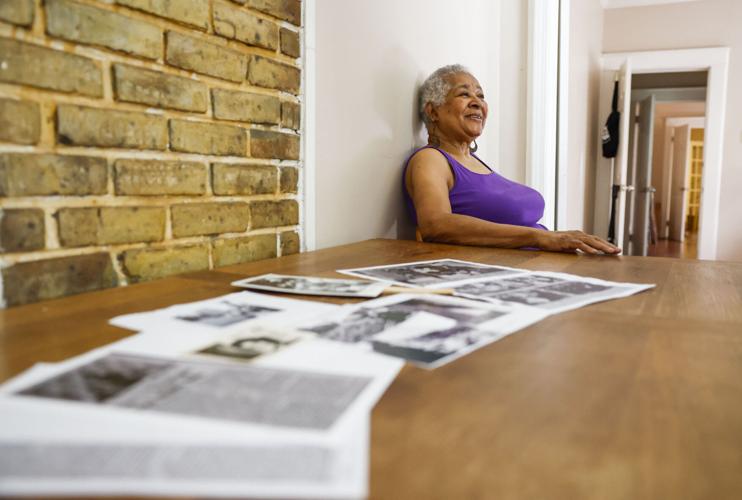One night, Rudy Lombard and Jerome Smith, who had just organized the New Orleans chapter of the Congress of Racial Equality, came to the NAACP youth council meeting asking us to help them with picketing at Woolworth's and McCrory's. That was something I could do, rather than sitting listening to somebody telling us what they're going to do. So I did.��
The NAACP approach through the courts was too slow for me. I needed something I could do. So the bulk of us, we became the backbone of New Orleans CORE.
Because I had some clerical skills, they stuck me in the southern regional office. This was leading up to the March on Washington.
I was seeing all of these messages saying people in Louisiana and Mississippi were excited about going to the March on Washington. I was getting jealous because I wanted to go.
One night, coming home from the office, I got off the bus and went to 917 Tonti St., which we called Freedom House. I knocked on the door and Oretha Castle asked, "What are you doing here?" I said, "I want to go to Washington for the march." She said, "You can't go."
She just kept saying I couldn't go.��I kept saying, "But I want to go."
She was having a meeting with the Rev. A.L. Davis. Davis said, "Young lady, you look like you really want to go on this trip." Davis was the minister of New Zion Baptist Church, where SCLC was organized. He went in the back, used the phone, came back and he said, "Get your stuff together. You're going."
He reached in his pocket, grabbed a wad of bills and peeled off $100 and gave it to me. I wasn't going anywhere without money. I didn't have the money back then. That's how I got to go.
I went on an SCLC bus organized by Clarence "Chink" Henry. He was president of the longshoreman's union and vice president of New Orleans SCLC.
I didn't know anybody on the bus. I was 20. I was hoping I could still get to 21 so I could vote.
I didn't have much to pack. I packed up some underclothes and a toothbrush. I was wearing the same blue, pleated dress there and back because we didn't stay. It wasn't my dress. It was my sister's dress. I just took it because it was cleaned and pressed and I didn't like to wash clothes.
When we got to Washington, D.C., they had a couple of hotel rooms so we could freshen up and use the bathroom. There weren't many stops along the way.
We got dropped off at the Washington Mall for the march. We heard several speakers, and then there was Martin Luther King Jr. He was giving his "I Have a Dream" speech, and I just blurted out��— to no one in particular��— "Wow. You are dreaming. I'm having nightmares."
I was worried about James Farmer, who was in jail in Louisiana, arrested at a protest. Farmer was a CORE leader and an organizer of the March on Washington. He should've been there. I was thinking they might kill him. A number of us were pretty close to James Farmer. We called him Uncle Jim. When there was talk about him turning himself in, I was saying, "Please don't do it." But he did what he thought was best.��
What upsets me is that everybody talks about the March on Washington, and nobody ever said that��. When he was president of the Brotherhood of Sleeping Car Porters, he created the March on Washington movement.
There were so many people. I think it was the biggest crowd, at that time, ever. As far as you could see, people, people, people, people, people, people.
We all became leaders at a young age. So Rudy Lombard, Jerome Smith, Matt Suarez, Oretha Castle, George Raymond and Don Hubbard all played important roles in the movement.
It took us some time to get back to the bus. We were told to stay together. It was a long trip back.
The fact is that I went and I was there to take part in history.
My generation, we got involved. Up until recently, I was disappointed in the young people who have done absolutely nothing. They don't know what we went through.
Although I'm 80, I still get involved in stuff, but not to the extent that I did when I was much, much younger. I'm still hanging in there.��
We can help the young people and try to show them what they need to be doing, and how they need to be organizing. That's my job now.
Doratha "Dodie" Smith-Simmons is a longtime New Orleans civil rights activist, a founding member of the New Orleans chapter of the Congress for Racial Equality and a founder of the New Orleans Jazz & Heritage Festival.��Smith-Simmons told her story to columnist Will Sutton for this column.����













